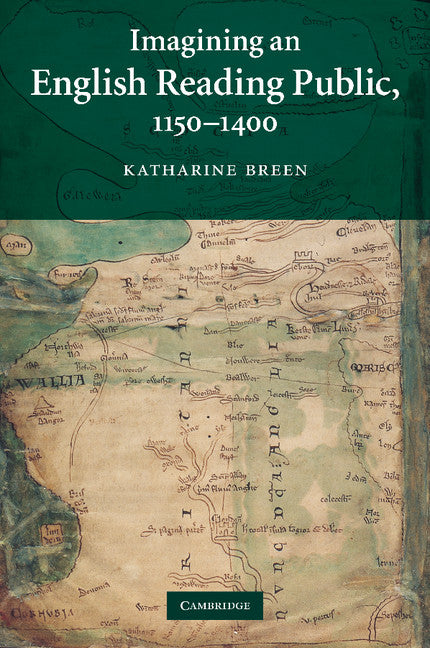Freshly Printed - allow 6 days lead
Couldn't load pickup availability
Imagining an English Reading Public, 1150–1400
Argues that the adaptation of habitus for a universal audience supported the development of a vernacular reading public.
Katharine Breen (Author)
9781107694613, Cambridge University Press
Paperback / softback, published 21 November 2013
302 pages, 13 b/w illus.
22.9 x 15.2 x 1.6 cm, 0.4 kg
'Katharine Breen's book presents a bold and provocative re-envisioning of what it meant to write in the vernacular in late medieval England. This study thus encourages us to re-imagine what lay behind the great flourishing of vernacular literary culture in the late fourteenth century … [The book] presents complex ideas clearly, and I found it to be well argued. I am confident that it will offer a significant contribution to our understanding of late medieval English literary culture and the place of the vernacular therein. Breen's book raises more questions than it answers - the sign of a provocative study, for sure … It is a testament to this stimulating study that, by exploring the issue of vernacularity within the discourse of habitus, Breen has framed a question that can be explored in many new and potentially invigorating directions.' Michael Johnston, Medium Aevum
This original study explores the importance of the concept of habitus - that is, the set of acquired patterns of thought, behaviour and taste that result from internalizing culture or objective social structures - in the medieval imagination. Beginning by examining medieval theories of habitus in a general sense, Katharine Breen goes on to investigate the relationships between habitus, language and Christian virtue. While most medieval pedagogical theorists regarded the habitus of Latin grammar as the gateway to a generalized habitus of virtue, reformers increasingly experimented with vernacular languages that could fulfill the same function. These new vernacular habits, Breen argues, laid the conceptual foundations for an English reading public. Ranging across texts in Latin and several vernaculars, and including a case study of Piers Plowman, this interdisciplinary study will appeal to readers interested in medieval literature, religion and art history, in addition to those interested in the sociological concept of habitus.
Introduction
1. The fourteenth-century crisis of habit
2. Medieval theories of habitus
3. The grammatical paradigm
4. A crusading habitus
5. Piers Plowman and the formation of an English literary habitus
Epilogue. The King's English.
Subject Areas: Literary studies: general [DSB], Literature: history & criticism [DS], Literature & literary studies [D]


